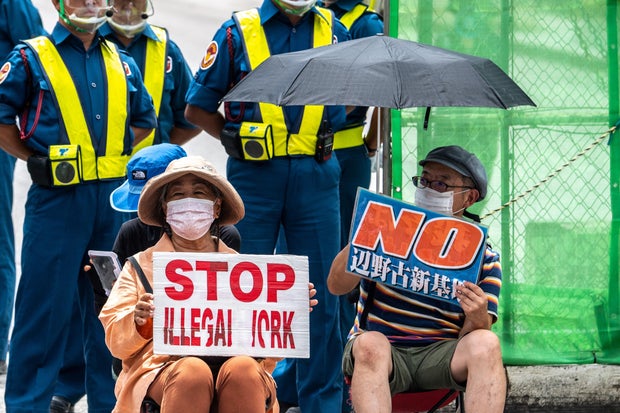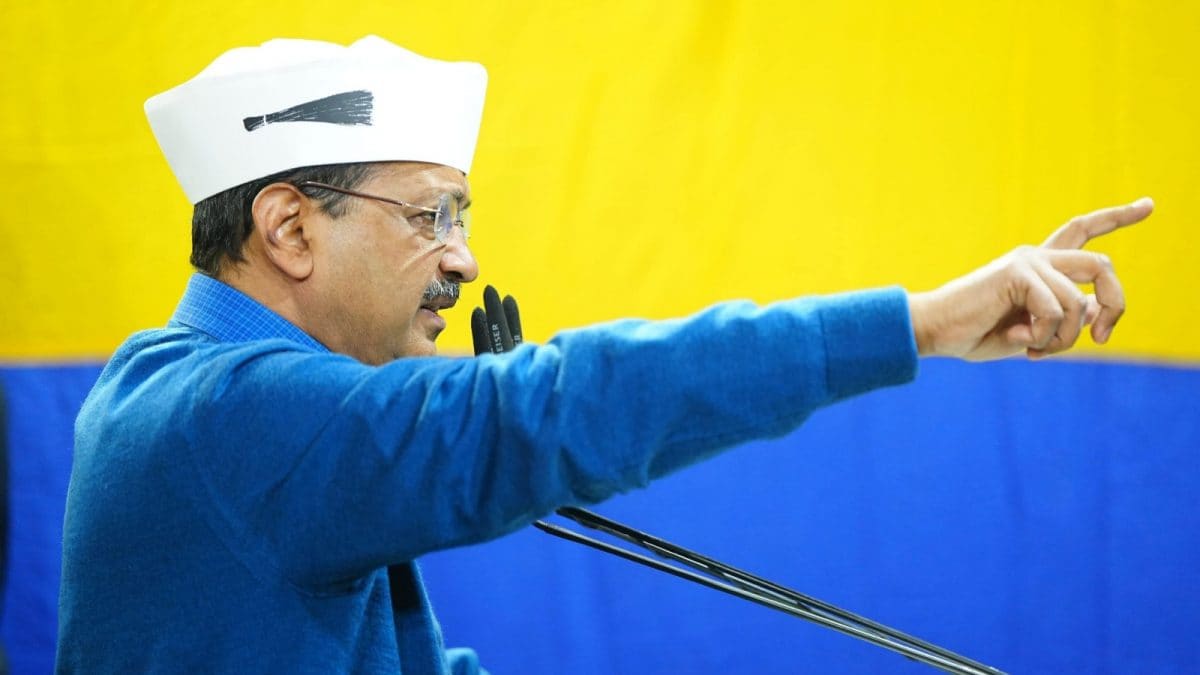Tokyo — Japan’s government protested Friday to the U.S. Embassy in Tokyo over at least two sexual assault cases involving American servicemembers on the southern Japanese island of Okinawa that were only recently made public.
In one case, an Air Force member is accused in March of assaulting a teenage girl in December, while the other, which dates from May, involves a Marine accused of assaulting a 21-year-old woman.
The case involving the assault of the teenager is a reminder to many Okinawans of the high-profile 1995 rape of a 12-year-old girl by three U.S. servicemembers, which sparked massive protests against the heavy U.S. troop presence on Okinawa. It led to a 1996 agreement between Tokyo and Washington on a closure of a key U.S. air station, though the plan has been delayed due to protests at the site designated for its relocation on another part of the island.
PHILIP FONG / AFP via Getty Images
Some 50,000 U.S. troops are deployed in Japan under a bilateral security pact, about half of them on Okinawa, whose strategic role is seen increasingly important for the Japan-U.S. military alliance in the face of growing tensions with China. Japan’s southwestern shift of its own military also focuses heavily on Okinawa and its nearby islands.
Chief Cabinet Secretary Yoshimasa Hayashi told reporters Friday it was “extremely regrettable” the two alleged sexual assaults occurred within months. Japan “takes it seriously” and Vice Foreign Minister Masataka Okano conveyed regrets to U.S. Ambassador to Japan Rahm Emanuel, requesting disciplinary and preventive measures, Hayashi said.
“I believe that the U.S. side also takes this matter seriously,” Hayashi said. “Criminal cases and accidents by U.S. military personnel cause great anxiety to local residents, and they should never occur in the first place.”
The U.S. Embassy in Tokyo declined to confirm details of the meeting between Emanuel and Okano and how the ambassador responded, citing diplomatic rules.
Hayashi said Japanese prosecutors in Naha, the capital of Okinawa, had pressed nonconsensual sex and assault charges against the Marine on June 17, which were only announced Friday. Both suspects were handled by the Japanese authorities.
An Okinawa police spokesperson told Agence France-Presse the Marine is accused of “assaulting the victim for the purpose of sexual intercourse and injuring her,” adding that, “The fact that he used violence for that purpose and wounded her constitutes non-consensual sex resulting in injury.”
The woman was “bitten in the mouth” and took two weeks to fully recover, he said. Media reports said she was also choked.
The two cases have sparked outrage and echo Japan’s fraught history with US troops, including the 1995 gang rape of a 12-year-old girl by three U.S. servicemen.
The Naha District Prosecutors’ Office refused to confirm indictments in the two cases over the phone with anyone who is not a local press club member. Okinawa prefectural police said the two cases were never made public out of consideration for the privacy of the victims.
Okinawa residents and the island’s governor, Denny Tamaki, have long complained about accidents and crime related to U.S military bases and expressed anger over the alleged crime and lack of disclosure.
Tamaki, who opposes the heavy U.S. troop presence on Okinawa, said he was “speechless and outraged.” He stressed the need to “reconstruct” the communication system in case of crime and accidents involving American service members.
“I’m deeply concerned about the severity of this allegation and I regret the anxiety this has caused,” Brig. Gen. Nicholas Evans, Commander of the 18th Wing at Kadena Air Base on Okinawa, who visited the Okinawa prefectural government with several U.S. officials, said on Thursday, though he did not apologize.
He promised the US military will fully cooperate with the investigation by the local authorities and the courts.
Okinawa Vice Gov. Takekuni Ikeda told Evans and other officials that the alleged assaults were serious human rights violations against women. “We find them absolutely unforgivable, and we are outraged,” he said.
Ikeda also protested the delayed notification of the criminal cases, saying they caused anxiety for residents near the U.S. bases. He said the prefecture was only notified this week about the December case, when the suspect was indicted in March, and only after inquiries by the Japanese Foreign Ministry.








